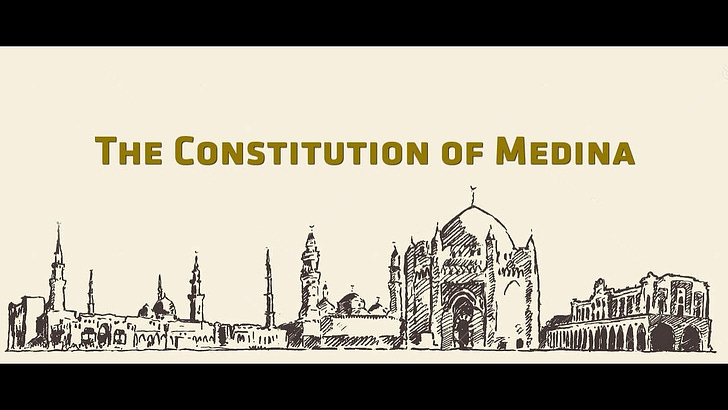The Constitution of Medina: A Model for the Taliban, and for All Islamic Governance
Above is my khutba (Islamic sermon) on the Constitution (Covenant) of Medina; below is the article I just submitted to Crescent International, the newsmagazine of the Islamic movement. -KB
By Kevin Barrett, for Crescent International.
On August 16, my former University of Wisconsin-Madison colleague Jeremy Suri published an article in Foreign Policy under the provocative headline: “Why Afghanistan’s Tribes Beat the United States: Tightly bound kinship networks aren’t vestiges of the past. They’re a modern—and effective—form of political oganization.” Suri cites Sumit Guha’s Tribe and State in Asia Through Twenty-Five Centuries, arguing that Guha’s thesis of “a ‘resurgence of tribes’ in Asia and other continents” is the key to understanding why the Taliban defeated the United States.
Suri’s analysis, as is often the case, is a half-step ahead of the academic international affairs establishment. The consensus view in political science holds that the so-called modern secular state has supplanted religion and kinship networks as the only viable model of governance.
Suri approvingly writes that “Guha is critical of how academics, journalists, and policymakers generally talk about tribes. They are described in static terms, almost inevitably freighted with assumptions about cultural inferiority. If states are rational and innovative, tribes are depicted as static and tradition-bound. Americans of all political stripes cannot shake the belief they know better than the tribal inhabitants of Afghanistan they spent 20 years trying to organize as a modern military and state bureaucracy.”
Suri is right about the importance and effectiveness of tribal organization in Afghanistan. He is even more apropos in his critique of the arrogant ethnocentrism of Americans and Westerners in general, who imagine that their own political model, which appears to be in an advanced stage of decadence and quite possibly on the brink of collapse, is the only imaginable one.
But though Suri correctly stresses the strong points of governance (and resistance) through kinship networks, he does not seem to fully appreciate the role of Islam in forging unity between tribes and peoples.


